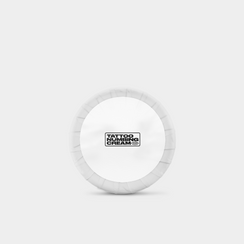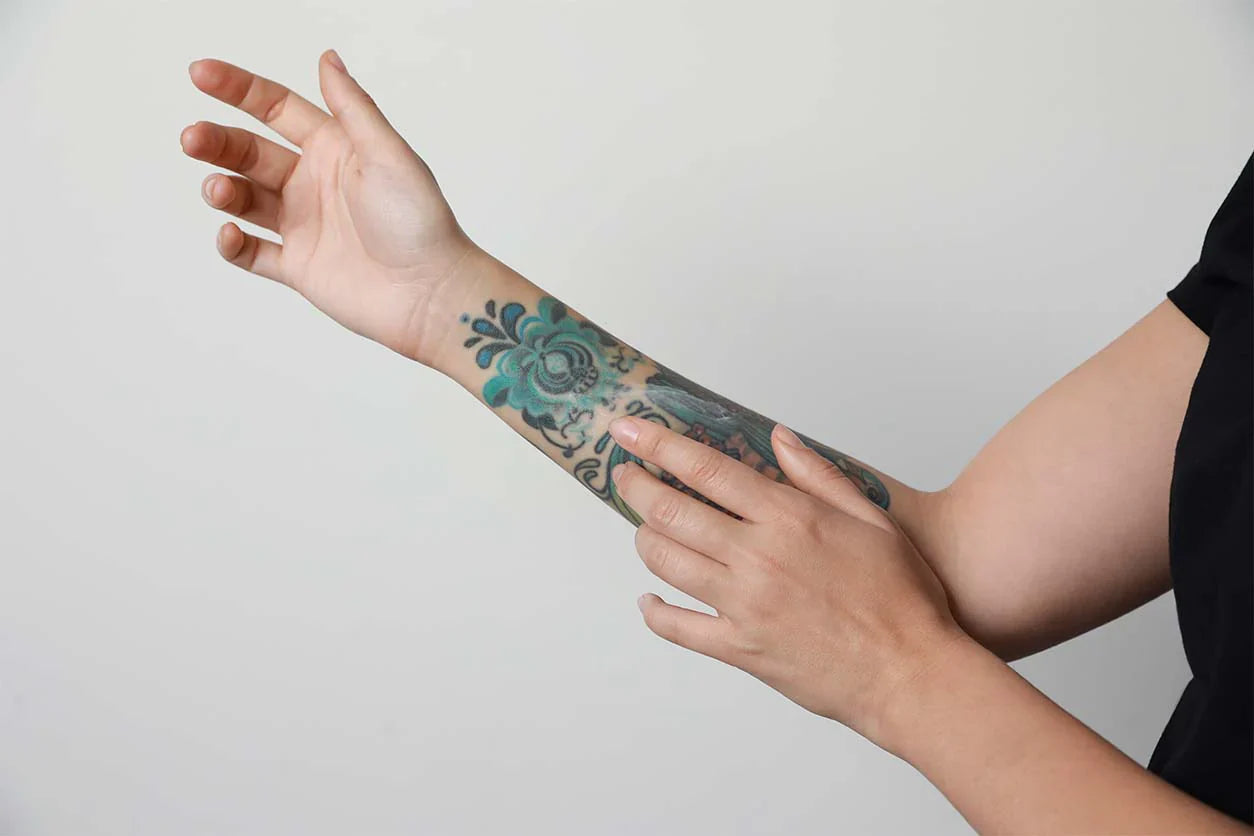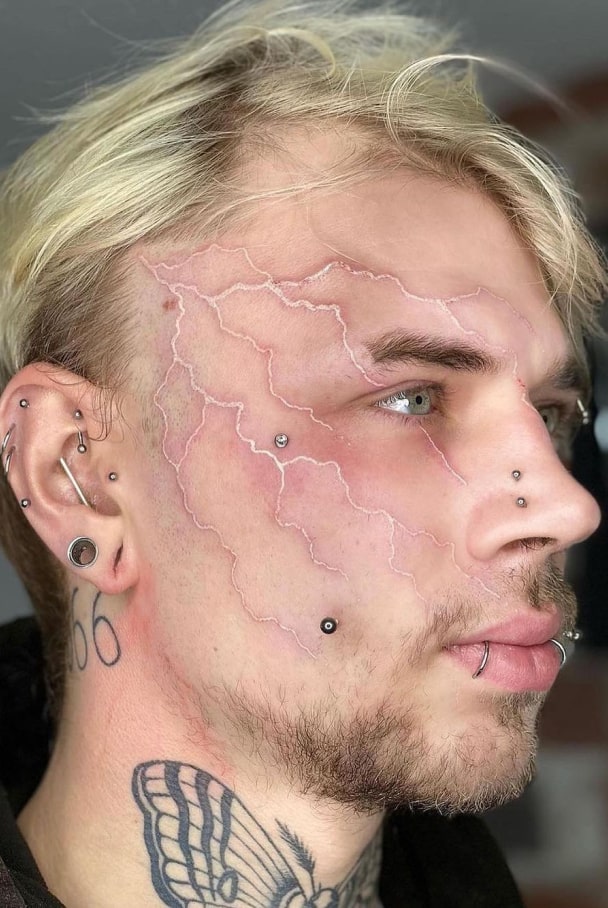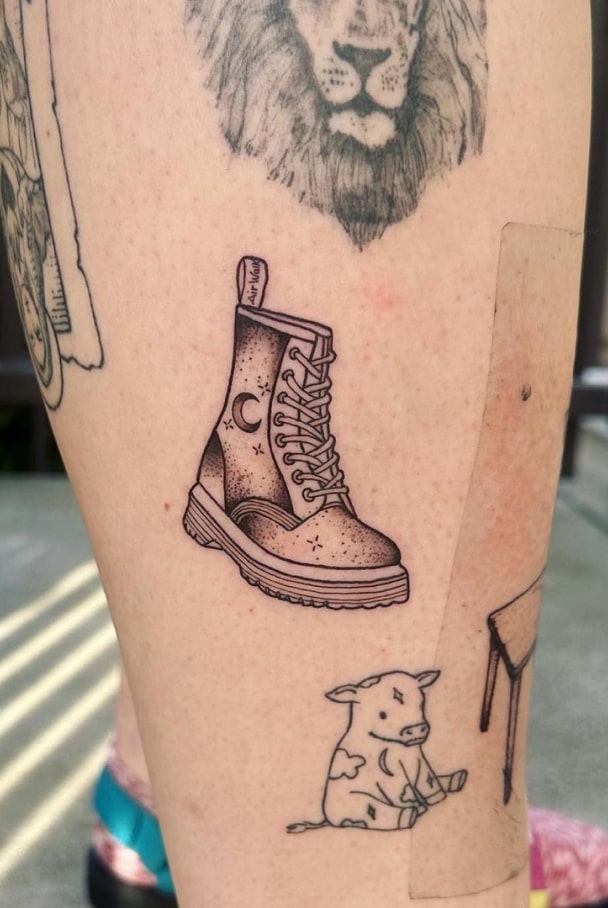Making sure you have the best quality finish on your ink is always going to be a top priority. Tattoo numbing creams have been a source of confusion when it comes to whether they affect your tattoo finish. The short answer is that most numbing creams will not impact your tattoo, but you need to be sure of the quality of the product you use. This post is all about looking into the relationship between numbing creams and tattoo healing, helping to dispel some rumours that have been going around for too long.
Understanding the Tattoo Healing Process
After getting a tattoo, your skin undergoes a complex healing process. The area may initially be red, swollen, and tender, but the skin starts to scab and peel as it regenerates new layers over the following days and weeks. Over time the skin will heal completely, leaving you with an amazing artistic masterpiece on your body to enjoy. However, it's essential to follow proper aftercare instructions provided by your tattoo artist to ensure optimal healing and prevent complications such as infection or scarring.
The Role of Numbing Creams
Numbing cream for piercings and tattoos, also known as topical anaesthetics, are commonly used to reduce pain and discomfort during painful procedures. These creams work by numbing the skin's surface, temporarily blocking nerve signals and dulling pain receptors - similar to the way local anaesthetics work. Simply apply an amount to the chosen area, wait for the recommended time, and then enjoy the tattoo process with as little pain and discomfort as possible.
Impact of Numbing Creams on Tattoo Healing
Looking at the impact that numbing creams can have on tattoo healing isn’t always so straightforward. When used properly, numbing creams typically do not have a significant impact on the tattoo healing process. The active ingredients in numbing creams are designed to target nerve receptors in the skin, rather than interfering with the skin's natural healing mechanisms.
It's important to note that not all tattoo numbing creams are created equal, and using a high-quality product is essential to ensure a safe and comfortable experience. Just like anything, quality matters. Low-quality numbing creams may contain inferior ingredients that can cause skin irritation or even tattoo numbing cream related allergies. Additionally, some numbing creams can create a slippery surface on the skin which may make it challenging for the tattoo artist to work effectively.
Here are some considerations to keep in mind to ensure you get the best possible finish on your tattoo:
Skin Sensitivity and Irritation
While numbing creams are generally safe for most individuals, some people with sensitive skin may experience mild irritation or redness after using them. This irritation is usually temporary and subsides shortly after the tattooing session. However, in rare cases, individuals may develop allergic reactions such as itching, swelling, or rash formation. If you experience any severe or persistent symptoms, it's essential to seek medical attention promptly.
Moisture Barrier
Some numbing creams create a barrier on the skin's surface, which can affect the absorption of moisturisers or healing ointments applied after the tattooing session. Proper hydration and moisturisation are essential for promoting optimal healing and preventing complications such as scabbing or excessive dryness. To ensure that your tattoo heals properly, it's essential to follow your tattoo artist's aftercare instructions carefully. This may involve applying a thin layer of healing ointment or moisturiser to the tattooed area regularly to keep the skin hydrated and promote healing.
Delayed Healing
There won’t ever be a situation where your numbing cream rejects ink altogether, but in rare cases, excessive use of numbing creams or improper aftercare can delay the tattoo healing process. While numbing creams themselves will not interfere with the skin's natural healing mechanisms, factors such as inadequate moisturisation, excessive rubbing or scratching of the tattooed area, or exposure to irritants can slow down the healing process.
If you notice that your tattoo is taking longer than usual to heal or experiencing unusual symptoms such as persistent redness, swelling, or discharge, it's crucial to consult with your tattoo artist or a dermatologist for further evaluation and guidance.
Tips for Ensuring Optimal Healing
To promote optimal healing after getting a tattoo with the use of numbing creams, consider the following tips:
- Follow your tattoo artist's aftercare instructions carefully, including proper cleaning and moisturising of the tattooed area.
- Avoid excessive exposure to sunlight, chlorine, or other irritants that can interfere with the healing process.
- If you experience any unusual symptoms or complications during the healing process, seek medical attention promptly to prevent further complications.
- Always make sure that your cream is in date before use. Expired tattoo numbing creams will not directly cause issues with healing, but they can sometimes lead to inflammation and reactions in rare cases.
It’s Time For Pain-Free Tattooing
Numbing creams can provide effective pain relief during tattooing without significantly impacting the tattoo healing process when used properly. By following proper aftercare instructions and monitoring the tattooed area for any signs of irritation or complications, you can ensure a smooth and successful healing process, allowing you to enjoy your new tattoo for years to come.
Looking to invest in some tattoo numbing cream for your next planned ink project? Choose Tattoo Numbing Cream for the ultimate pain-free solution. Our creams promise the very best finish for your tattoos, whilst proving an impressive 3 hours worth or numbing relief. Get tattoos with no pain, all gain.








